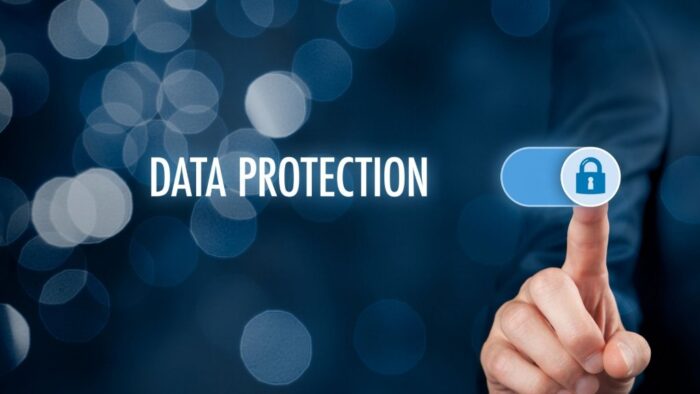Liability insurance is essential for businesses in the event they are sued for any losses from standard business practices. While business insurance is referred to as general liability insurance, there are subtypes of business insurance specific to individual business needs. For example, the insurance needs of a catering business are distinct in terms of what is needed to stay successful; the company must have liability coverage for the type of catering it falls under.
Business owners interested in purchasing insurance for their catering business must be aware of the type of catering they’re offering to determine what policies will provide them with the coverage they need. There are different kinds of catering styles that require unique insurance coverage to stay successful. The three styles include on-premises, off-premises, and mobile catering.
Once the caterer is aware of the type of liability insurance they need, they can better understand the specific reasons behind the recommendations for certain coverages. By going through the coverages that caterers should be aware of and why, caterers have a clearer insight into what they need to ensure their business succeeds. For more information, here are five reasons why catering businesses of all types need liability catering insurance.
Table of Contents
1. Catering Insurance For General Liability

Regardless of the type of catering business, general liability insurance is a must. Small and large companies need the security of a standard GL policy, as it protects against lawsuit costs and liability for mistakes made while catering. With liability catering insurance, the caterer’s legal defense is financially supported, along with damage coverage if found liable. Some of the reasons behind general liability insurance include food poisoning, allergic reactions, and alleged death following the consumption of company food.
2. For Employee Violation Claims
Other types of liability catering insurance, such as employment practices liability insurance (EPLI), are necessary as they protect caterers from lawsuit costs by their employees. In instances when employees feel that the caterer or catering company has violated their rights, the caterer can be sued. With EPLI, the costs of the court hearings are under coverage, as well as for any damages that deem the caterer liable. Some examples of cases when EPLI is needed are claims that the caterer did not provide employees with tips or that retaliation occurred following a class action settlement.
3. For Failing To Protect Customer Data

At first, glance, getting cyber liability catering insurance as a catering business might seem unnecessary, but it’s extremely important. Any company, that contains private customer data must have cyber liability insurance to protect against charges for stolen data, cyber-attacks, and security breaches. To protect the business against the consequences of getting sued, cyber liability insurance is necessary to cover the associated costs. With more companies going digital, the need for cyber liability insurance is significant to ensure that digital business information remains secure.
4. For Injuries And Accidents From Alcohol
A catering company needs a solid liquor liability policy in order to protect itself from lawsuits related to alcohol injuries or accidents that result from being overserved during events. The consequences of mishandling alcohol can be devastating, and including alcohol as part of the catering options comes with legal risk. For all these reasons, liquor liability catering insurance is necessary to handle the legal costs and potential penalties resulting from accidents or injuries connected to alcohol served at events.
5. For Commercial Auto Coverage
For vehicles used for business purposes, commercial auto insurance coverage is necessary. If losses occur when the car is used for work, commercial auto insurance will cover the costs related to such failures. Most personal auto policies fail to cover losses when a vehicle is used for work; therefore, commercial auto catering insurance is essential for most
businesses. Some businesses may be particularly interested in BOP (business owners’ policy) catering insurance; this style of insurance combines general liability and property damage coverage together. It also takes care of adding endorsements you choose to integrate into your policy.
Cover all your bases to protect all parties

Catering businesses need liability insurance in order to address the needs that are specific to the catering business. By selecting the catering liability insurance necessary for your business, you can go much farther in protecting against financial losses and ensuring that you are covered against damages. It is not nearly enough to rely on general liability catering insurance alone, as it does not include the many-layered issues that can arise from daily catering operations. To protect your business correctly, you want to understand the areas of liability that are most plausible and to ensure that you have policies that have everything you need to be covered for your catering business.
Understand the specific needs of your catering business
There are three primary styles of catering, each of which requires its own set of insurance coverage needs. Reflect on the setup of your catering company to determine which category (on-premises, off-premises, or mobile catering) your business fits most closely under. Understanding what your company needs to stay covered is critical to its success. For example, on-premises coverage should include location-specific losses that can occur from catering efforts.
If your business caters to a hotel, restaurant, or another location, your insurance coverage should include coverage for on-premises occurrences. The same is true for off-precise and mobile catering. Commercial auto insurance is essential for the latter two as the business relies on vehicles to transport the food to the event locations or for mobile catering to cook and deliver to food sites (such is the case with food trucks).
For the success of your company, get the coverage it needs.
Protecting your business, employees, customers, and third-party affiliates is possible with the correct catering insurance coverage in place. It is not always possible to foresee the accidents and liable circumstances that can occur, so having a catering insurance policy that you can lean on is essential to the success and continuance of your company.

